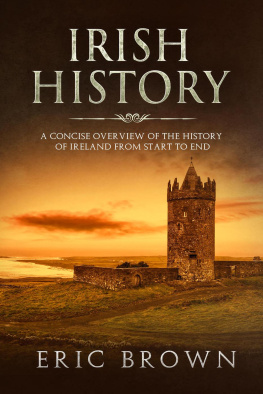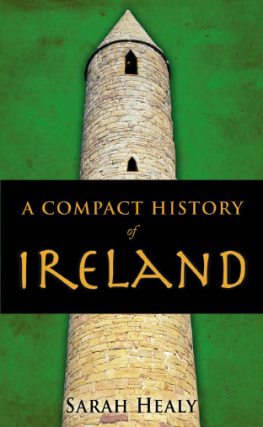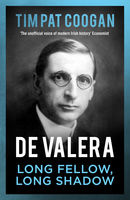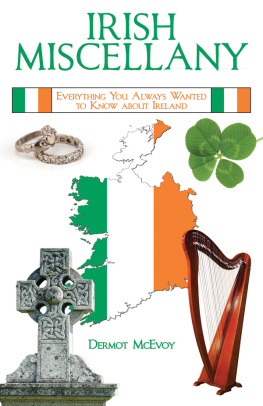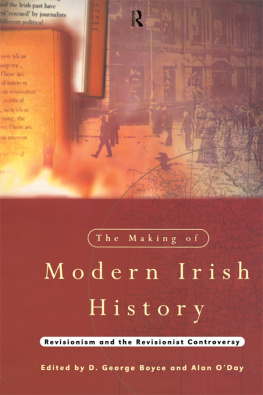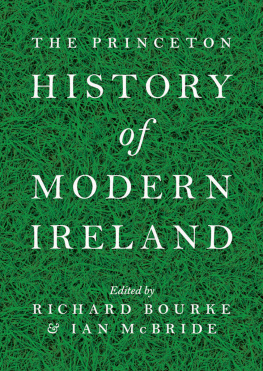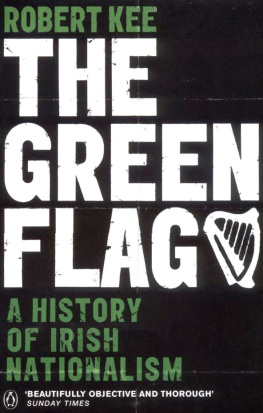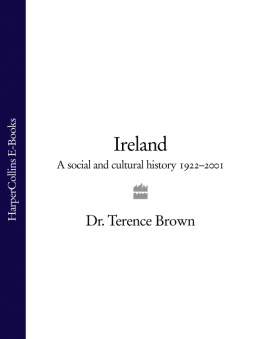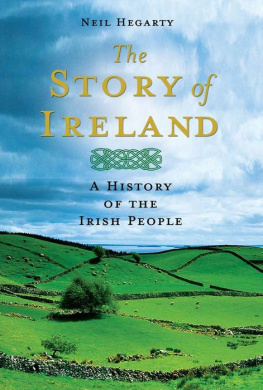A NEW HISTORY OF IRELAND
UNDER THE AUSPICES OF THE ROYAL IRISH ACADEMY
PLANNED AND ESTABLISHED BY THE LATE T. W. MOODY
BOARD OF EDITORS
F. J. BYRNE W. E. VAUGHAN
ART COSGROVE J. R. HILL
DIBH CRINN
VII
IRELAND
192184
A NEW HISTORY OF IRELAND
UNDER THE AUSPICES OF THE ROYAL IRISH ACADEMY
PLANNED AND ESTABLISHED BY THE LATE T. W. MOODY
| Vol. I | Prehistoric and early Ireland |
| Vol. II | Medieval Ireland (11691534) |
| Vol. III | Early modern Ireland (15341691) |
| Vol. IV | Eighteenth-century Ireland (16911800) |
| Vol. V | Ireland under the union, I (180170) |
| Vol. VI | Ireland under the union, II (18701921) |
| Vol. VII | Ireland, 192184 |
| Vol. VIII | A chronology of Irish history to 1976: a companion to Irish history, I |
| Vol. IX | Maps, genealogies, lists: a companion to Irish history, II |
A NEW HISTORY OF
IRELAND
VII
IRELAND
192184
EDITED BY
J. R. HILL


Great Clarendon Street, Oxford OX2 6DP
Oxford University Press is a department of the University of Oxford.
It furthers the Universitys objective of excellence in research, scholarship,
and education by publishing worldwide in
Oxford New York
Auckland Cape Town Dar es Salaam Hong Kong Karachi
Kuala Lumpur Madrid Melbourne Mexico City Nairobi
New Delhi Shanghai Taipei Toronto
With offices in
Argentina Austria Brazil Chile Czech Republic France Greece
Guatemala Hungary Italy Japan Poland Portugal Singapore
South Korea Switzerland Thailand Turkey Ukraine Vietnam
Oxford is a registered trade mark of Oxford University Press
in the UK and in certain other countries
Published in the United States by Oxford University Press Inc., New York
Oxford University Press 2003
on behalf of the editors and contributors
The moral rights of the authors have been asserted
Database right Oxford University Press (maker)
First published 2003
First published in paperback 2010
All rights reserved. No part of this publication may be reproduced,
stored in a retrieval system, or transmitted, in any form or by any means,
without the prior permission in writing of Oxford University Press,
or as expressly permitted by law, or under terms agreed with the appropriate
reprographics rights organization. Enquiries concerning reproduction
outside the scope of the above should be sent to the Rights Department,
Oxford University Press, at the address above
You must not circulate this book in any other binding or cover
and you must impose this same condition on any acquirer
British Library Cataloguing in Publication Data
Data available
Library of Congress Cataloging in Publication Data
Data available
ISBN 9780-19959282-1
1 3 5 7 9 10 8 6 4 2
Typeset 10.5/12pt MErhardt
by Kodam Information Services Pvt. Ltd, Pondicherry, India
Printed in Great Britain
on acid-free paper by
CPI Antony Rowe, Chippenham, Wiltshire
PREFACE
THIS volume completes the text of the New history to 1984. The year 1984in which the final report of the New Ireland Forum appearedhas been taken as the latest practicable date at which to end this volume. In selecting this date, we had to take into account the problems of dealing with Irish history so close to the present. In addition to the greatly increased flow of scholarly and other writing on this period since the compilation of the New history began, the course of events covered by later parts of the text has been subject to constant and dramatic change. The perspective in which the whole period appears has been similarly affected.
Coincidentally, the year 1984 was marked by the death on 11 February of T. W. Moody, without whom the development of Irish historiography in general since the mid 1930s would have been very different; and without whom the New history itself, in particular, would never have taken shape. His career, achievements, and personal qualities have received fitting recognition from F. S. L. Lyons and in obituaries by F. X. Martin, Helen F. Mulvey, and others whose work is listed in the bibliography to this volume, though a full account has not yet been written, and even an adequate tribute is impossible in the space available to us here.
Theo Moody launched the New history with the aim of making more widely accessible the fruits of a generation of specialist scholarshippartly to redress a shortage of good general histories of Ireland, partly to act as a stimulus to wider study and further research, and also because, in his own words, if history at its best is not made available to the educated public as a whole, it fails in one of its essential social functions. In the years since he did so, the output both of good general histories (indebted in some degree to the example, even to the mere existence, of the New history) and of specialist research has increased to such an extent that a member of the educated public today may find it hard to appreciate the importance of his concept and his achievement. No one, however, should underestimate the extent to which the New history, as it now stands, depends on his personal investment of thought and effort. Up to his death, he was the impelling and directing force of the organisation that brought the work of scores of scholars together.
His successors as editors have tried to carry on what he established, and in doing so were perhaps more aware of his ideals than he was himself. The New history has certain characteristics, which were not the result of accident, serendipity, or fashion. One is the breadth of the work. This is best demonstrated by the inclusion of chapters on painting, architecture, and the decorative arts. The chapter on womens history in volume VII, we consider an extension that he would have approved. A further feature is an obsession with accuracy. It would be wrong to claim that the editors have checked every footnote and every detail in the text that was easily checkable, but they can say with a weary certainty that many, many details have been checked. They can also concede with regretful certainty that some details have escaped their vigilance. A third feature has been the consideration given to every aspect of the books production. Whether it was the contents list, the lists of contributors, the illustrations, the index, or the dust-jacket, all received as much attention as the text and the scope and layout of the whole project. Among our achievements we include the attractive dust-jackets designed for us by Dr Edward McParland for all volumes since volume III; we must also mention the unique recognition given to the index of volume IV, prepared by Colm Croker, which was nominated for the Wheatley medal of the British Library Association in 1987.
To those who worked most closely with Theo, he was a constant and virtually inexhaustible source of energy, imagination, and sound judgement. For him the writing of history rested on a number of foundations that he not only set out for the New history but instilled in his students. His ideas for the New history were the local application of a philosophy of history that he propagated and inculcated. Briefly stated, the practice of history required four things. First, all the available sources should be used, and they should be critically appraised. Historiographical progressadvances in interpreting the pastcould only come about as the result of new research, and that in turn required the historian to be steeped in as many of the sources as possible. Historians views of the past did not depend on whimsy, changing orthodoxies, or convenient changes of viewpoint, but on the raw material of the story, which was constantly producing new characters and new plots. Secondly, the writing of history was done by making a series of generalisations that would stand the test of critical examination. Any new synthesis was likely to enjoy only the status of an interim report (a phrase he often used). No interpretation of the past was so hallowed as not to be liable to change if new information came to light. Thirdly, writing should be clear, free from jargon, and purged of tendentious language. Fourthly, all conclusions had to be considered. There could be no suppression, invention, or misrepresentation. Facts, which in the nature of things were often more ambiguous than the enthusiastic would have wished, had to be faced. It was the rigour with which Theo adhered to these principles that made him such a formidable presence, whether directing a postgraduate seminar or chairing a meeting of the board of editors of the
Next page

